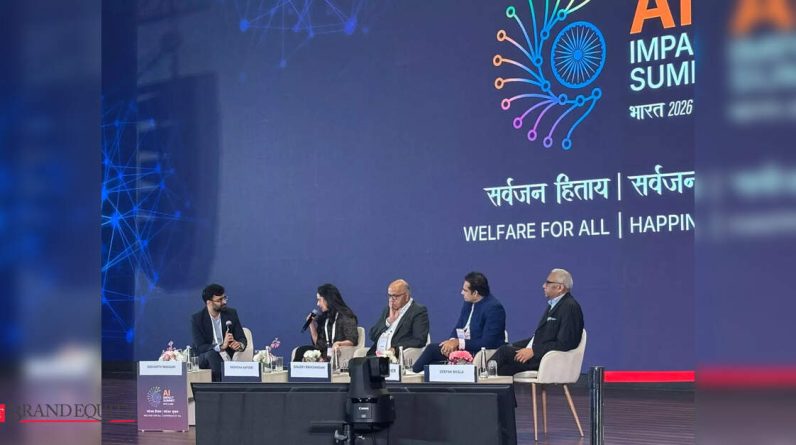
India’s digital economy is advancing at an extraordinary pace, driven by cutting-edge technologies like AI, robotics, and Industry 4.0. As the nation moves towards an AI-powered future, it’s essential to focus on hiring, upskilling, and reskilling the workforce to maintain a competitive edge in the global landscape. From AI and cloud computing, to deep tech and robotics, the demand for specialised skills is growing exponentially.
The Changing Hiring Landscape
India is experiencing a dramatic shift in hiring practices as the demand for technical skills surges. More than ever before, companies are prioritising skill-based hiring, with 68% of recruiters focussing on abilities rather than traditional qualifications. This trend is most evident in emerging fields like AI, ML, cybersecurity, and cloud computing. For example, between 2022 and 2023, AI and ML job postings in India rose by 74%, reflecting the massive growth of these sectors.
As industries increasingly adopt AI, robotics, and cloud computing, the demand for specialised talent is skyrocketing. The cloud market in India is expected to reach $13 billion by 2026, leading to a surge in demand for cloud architects and engineers. Similarly, cybersecurity roles are growing rapidly due to heightened cyber threats, especially in industries like BFSI and e-commerce.
Additionally, India’s GCCs are expanding quickly, with 500 new centres expected by 2030, potentially creating between 600,000 and 800,000 new jobs. The rapid adoption of AI, automation, and Industry 4.0 technologies across sectors like healthcare, manufacturing, and e-commerce is driving this growth.
The author is Lohit Bhatia, President, Indian Staffing Federation
Upskilling for the Future
Upskilling is a vital component of workforce development. As new technologies emerge, organisations must invest in ongoing training to ensure that employees remain relevant. Many companies are implementing e-learning platforms that enable employees to upskill in emerging fields such as AI, data science, cybersecurity, and cloud computing. Along with that is the focus on areas that continue to have high demand-like software development, ERP, and DevOps-ensuring that the workforce remains at the cutting edge of technological advancements.
Government initiatives like ‘Make in India’ and ‘Digital India’ have further bolstered these efforts by encouraging the private sector to prioritise digital skills. The inclusion of coding and digital literacy in school curriculums is also laying the groundwork for a digitally savvy workforce from an early age.
Alongside upskilling, reskilling is equally important, especially given the speed at which AI and automation are transforming the job market. AI is not just replacing traditional jobs; it is also creating new roles. By 2030, AI is expected to create 1.25 million new jobs in India across various sectors, including healthcare, finance, and technology.
Reskilling is not only cost-effective, but it also offers organisations a competitive advantage. Studies show that upskilling programmes can be 20-30% cheaper than recruiting externally, while also reducing onboarding times and fostering employee loyalty. This is why companies are emphasising internal reskilling efforts that not only improve productivity but also enhance employee engagement and retention.
As we move into an era dominated by AI and automation, upskilling and reskilling become more crucial. Professionals in fields like AI and deep learning will see a rise in demand. This will require both employers and employees to be proactive in learning and adapting to the rapidly-changing technological landscape.
India’s hiring landscape is undergoing a shift as industries increasingly adopt AI, robotics, and cloud computing.
Industry 4.0
Industry 4.0, the ‘Fourth Industrial Revolution’, is reshaping sectors like manufacturing, healthcare, and logistics. By integrating AI, IoT, and robotics into production processes, India is leading the charge in this transformation. Industry 4.0 technologies like smart factories, digital twins, and 5G are opening up new opportunities for skilled workers in robotics, IoT, and data analytics.
In sectors like healthcare, robots are being used for patient care and monitoring, while in logistics, they are streamlining supply chain operations. With government-backed initiatives like ‘Make in India’ and ‘Digital India’, the robotics and automation sectors are poised for rapid growth. This presents a unique opportunity to bridge the skills gap by focussing on tailored training and development.
However, challenges remain. To fully capitalise on Industry 4.0, companies must collaborate with technology providers and focus on specific applications like predictive maintenance, customer-centric digital transformation, and automation. The key to success lies in bridging the skill gap, ensuring that employees are equipped to work with advanced technologies.
The digital economy presents immense opportunities for India, but only if the workforce is prepared. Companies believe that hiring, upskilling, and reskilling efforts are integral to ensuring that India remains competitive on the global stage. By investing in the right talent and equipping our employees with the skills needed for emerging technologies, we can harness the power of AI, robotics, and Industry 4.0 to drive innovation, growth, and productivity.
Views are personal. The author is Lohit Bhatia, President, Indian Staffing Federation.






